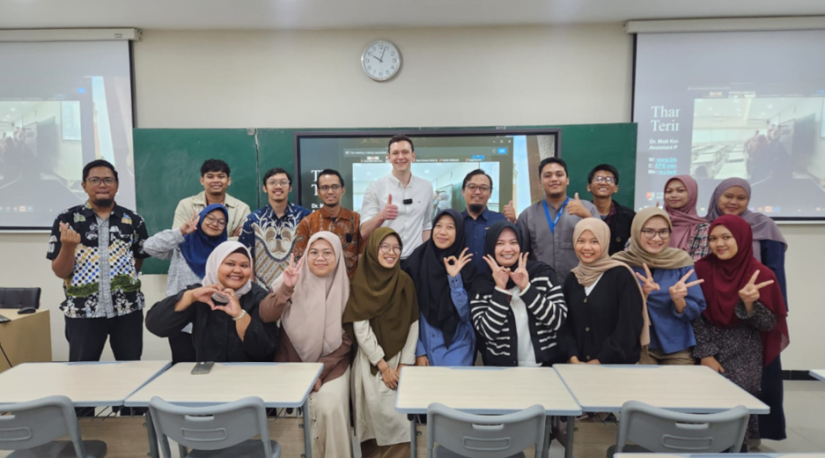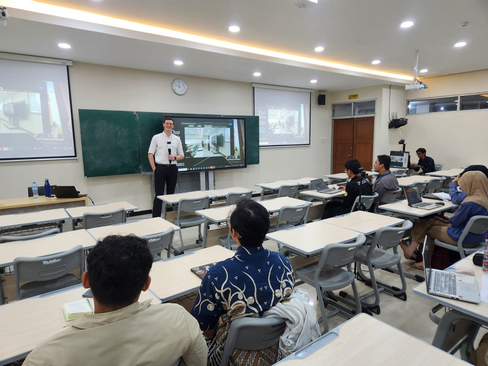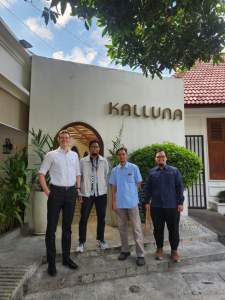
On 28 May 2025, the Department of Chemical Engineering at Universitas Gadjah Mada proudly hosted the second edition of the CHEMNOVATE webinar series, featuring a thought provoking talk by Dr. Matt Keith, an Assistant Professor at the School of Chemical Engineering, University of Birmingham. This hybrid event, held both in Room S102 of the department and via Zoom, brought together faculty members, students, and professionals to engage in critical conversations about the role of chemical engineering in building a more sustainable future.
In his talk titled “Engineering a Circular Economy for Chemicals,” Dr. Keith presented a compelling argument for why the traditional linear economic model of take make dispose is no longer tenable in the face of global environmental and resource challenges. Instead, he advocated for a paradigm shift toward circular systems, where materials are designed for longevity, reuse, regeneration, and minimal waste. Drawing from both academic and industrial perspectives, he highlighted how such a transformation requires a multidisciplinary approach, blending chemistry, process engineering, policy, and systems thinking.
Dr. Keith emphasized that the transition to a circular economy is not merely a technical challenge but also a strategic imperative for industries facing increasing regulatory pressures and consumer demands for sustainability. He showcased real world applications of circular principles, such as chemical looping, closed loop recycling, bio based feedstocks, and energy recovery strategies. Each example underscored the potential for innovation to redefine how value is extracted, retained, and regenerated in chemical processes.
One of the most striking themes that emerged during the presentation was the importance of designing out waste from the beginning. Rather than treating waste as a downstream issue, Dr. Keith urged engineers to rethink entire process flows, from raw material selection and catalyst efficiency to separation methods and product end of life. He also discussed how digital tools, such as life cycle analysis and process simulation, are critical enablers in quantifying environmental impact and optimizing circularity.
Beyond the technical content, the session served as a platform to promote international collaboration through the Double Degree Program between UGM and the University of Birmingham. Dr. Keith encouraged students to explore this opportunity to gain global perspectives, strengthen research capabilities, and immerse themselves in cutting edge sustainability initiatives in both institutions. The scholarship opportunities discussed sparked considerable interest among participants, many of whom stayed after the talk for an extended question and answer session and further discussion.
The webinar was well received, not only for its timely and urgent topic but also for the clarity and enthusiasm with which Dr. Keith delivered his insights. Participants left the session with a renewed sense of responsibility and inspiration, motivated to apply circular economy thinking in their coursework, research, and future careers. For UGM, events like CHEMNOVATE reaffirm the department’s commitment to fostering innovation, global engagement, and solutions oriented education in chemical engineering.


